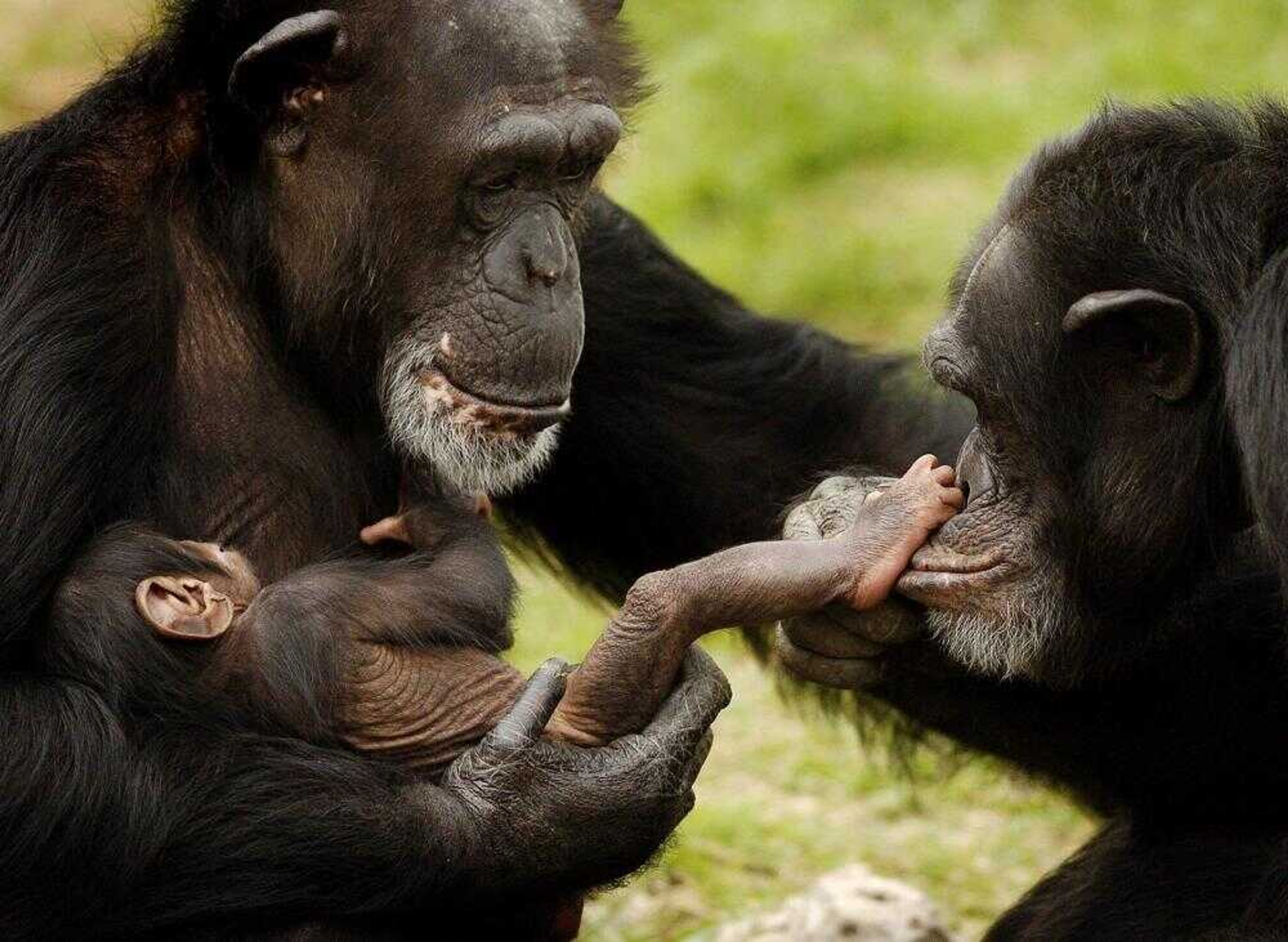Jane Goodall attends Chicago meeting on how chimpanzees think
CHICAGO -- Jane Goodall, the world's best-known observer of chimpanzee behavior, watched the chimps at Chicago's Lincoln Park Zoo on Saturday while a crowd of zoo-goers gathered to watch her. "She's very important," one woman told two 6-year-old girls she'd brought to the zoo. "She did a lot of very exciting things."...
CHICAGO -- Jane Goodall, the world's best-known observer of chimpanzee behavior, watched the chimps at Chicago's Lincoln Park Zoo on Saturday while a crowd of zoo-goers gathered to watch her.
"She's very important," one woman told two 6-year-old girls she'd brought to the zoo. "She did a lot of very exciting things."
Goodall, 72, is in Chicago for a three-day conference billed as the first scientific meeting on how chimpanzees think -- not just how they behave. Goodall, who revolutionized research on primates during the 1960s when she studied them at close range in Tanzania, is scheduled to give a sold-out lecture today at Navy Pier.
At the meeting, which ends today, 30 researchers are presenting their work on chimps' apparent mental capacity for empathy, cooperative problem-solving and even deception. All the presenters have cited Goodall's trailblazing work, said conference co-chair Elizabeth Lonsdorf, director of the Fisher Center.
The current "Mind of the Chimpanzee" meeting has drawn 300 of the world's leading primatologists to the zoo's Fisher Center for the Study and Conservation of Apes. It takes place against a backdrop of logging of forest habitat in Africa and growing international pressure to save chimpanzees and other apes, Goodall said.
"When I began in 1960 there must have been at least a million chimpanzees across Africa in 25 countries," Goodall said. "We don't think there are more than 150,000 now spread over 21 countries, many of them in tiny groups that, unless we can do something to help them, will become extinct."
Goodall's research documented tool use, emotions and war in the chimpanzee groups she observed, and her books and TV specials about her work at the Gombe Stream Chimpanzee Reserve sparked the world's curiosity about apes. She drew criticism from her peers for giving names to the animals she studied, but the public fell in love with her approach.
Goodall said a similar 1986 Chicago conference and its presentations on habitat destruction, illegal trade in chimpanzees for meat and treatment of chimps in medical research prompted her to switch from research to advocacy.
Later, at the zoo's chimpanzee enclosure, Goodall saw how 7-year-old Kipper followed 16-year-old Hank, the leader of the group, through the tree branches of their outdoor enclosure.
"It's his hero. Hero-worshipping," Goodall said. "At Gombe [in Tanzania], they do the same. They pick on one male -- it doesn't have to be the alpha -- and just follow that person around."
She seemed unaware of the flock of followers she herself had collected as she walked around the zoo.
---
On the Net:
The Mind of the Chimpanzee: www.chimpmindconference.org
Connect with the Southeast Missourian Newsroom:
For corrections to this story or other insights for the editor, click here. To submit a letter to the editor, click here. To learn about the Southeast Missourian’s AI Policy, click here.









